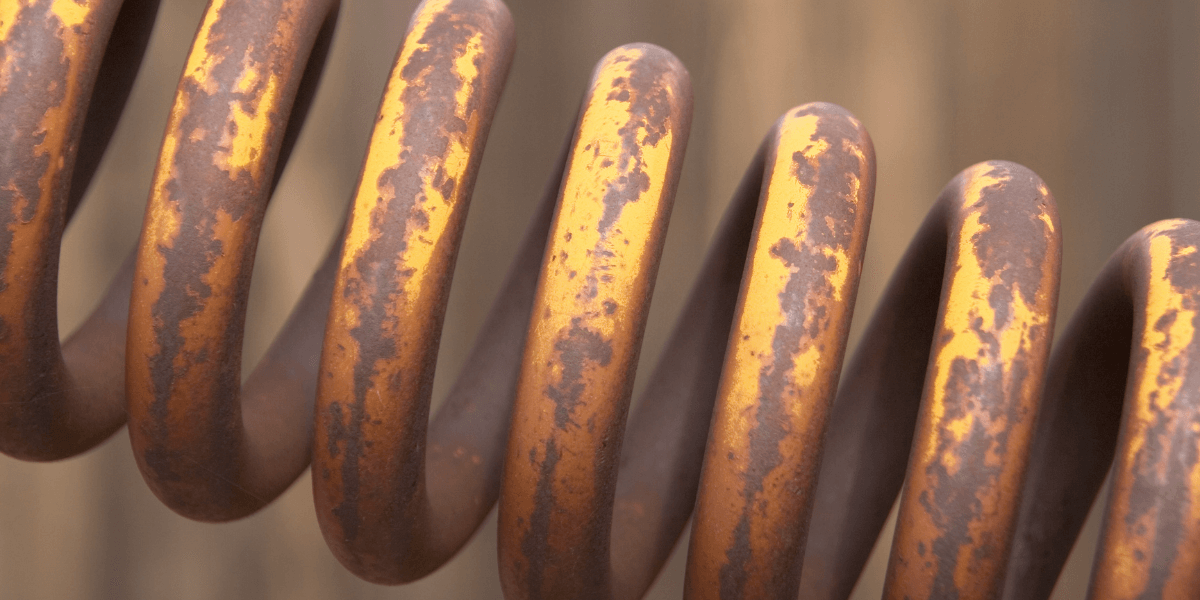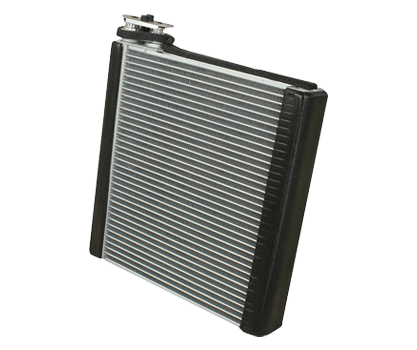How to Prevent Rust on Evaporator Coils with Protective Coatings

Rust is bad news for evaporator coils. Once it starts, it spreads fast, eating away at the metal and cutting down your system’s efficiency. Worst case? A full-on coil failure that leads to expensive repairs or replacements. But the good news? Rust on evaporator coils can be stopped before it starts. Protective coatings can add years to your coil’s life and save you from a headache down the road.
Why Do Evaporator Coils Rust?
Ever noticed rust on an evaporator coil? It’s not just an eyesore…it’s a warning sign. Rust forms when metal meets moisture and oxygen. And in HVAC systems, that’s happening all the time. Here’s why:
- High humidity – More moisture in the air means more chances for rust to develop.
- Condensation build-up – Evaporator coils constantly produce condensation, which, over time, can lead to corrosion.
- Chemical exposure – Cleaning agents, air pollutants, and even insulation materials can accelerate rusting.
- Salt in the air – Coastal areas? Expect rust to show up faster due to salty air speeding up the corrosion process.
Protective Coatings Are The Best Defense Against Rust
Not all corrosion coatings will get the job done. The right one depends on your environment, system, and budget. Here are the top options:
Epoxy Coatings
A tough barrier against moisture and chemicals. Epoxy coatings are durable and great for areas with high pollution or chemical exposure.
Best for: Industrial settings, commercial HVAC systems, and areas with heavy chemical use.
Pro Tip: Look for a coating that offers UV resistance if your coils are exposed to sunlight.
Polyurethane Coatings
Flexible, long-lasting, and resistant to most chemicals. Polyurethane coatings provide a solid defense without cracking or peeling over time.
Best for: Residential and light commercial HVAC systems.
Pro Tip: These coatings tend to last longer when professionally applied, so avoid DIY kits (unless you’re experienced.)
How Experts Apply Protective Coatings to Coils
Applying a protective coating isn’t just a quick spray-and-go job. Professionals follow a specific process to make sure the coating lasts and does its job right.
1. Surface Preparation
- Coils are thoroughly cleaned to remove dirt, grease, and oxidation.
- Depending on the coating type, a primer or etching process might be needed for better adhesion.
2. Application Process
- Some coatings are sprayed on, while others use dip-coating or electrostatic methods.
- Multiple thin layers are applied instead of one thick coat to avoid drips and pooling.
- For certain coatings, specialized equipment ensures even coverage in hard-to-reach areas.
3. Curing and Quality Check
- Coils are allowed to cure under proper temperature and humidity conditions.
- Technicians inspect for any missed spots or imperfections before installation.
When to Reapply Coatings
Even the best protective coatings don’t last forever. Regular maintenance helps prevent rust on evaporator coils from creeping in. Here’s what to keep in mind:
- Annual Inspections – Check for chips, peeling, or wear. (If you see exposed metal, it’s time for a new coat.)
- Harsh Environments? More Frequent Coating – If your system is in a coastal or industrial setting, consider recoating every 1-2 years.
- Routine Coil Cleaning – Use non-corrosive cleaners to keep coatings intact and effective.

Why Coat Coils from the Start?
Waiting to apply a protective coating after your coils have been in use isn’t the best move. Once rust starts, it’s hard to stop completely. A fresh, factory-applied coating gives your coils a clean slate and the best possible protection from day one.
- Prevents early corrosion – New coils are clean and rust-free, making them the perfect surface for long-lasting coatings.
- Stronger adhesion – Coatings bond better to brand-new metal than to corroded or previously treated surfaces.
- Saves money in the long run – Applying a coating upfront can prevent costly maintenance and premature evaporator coil replacement.
- Better efficiency from the start – Protected coils perform better and don’t degrade as fast, keeping your system running strong.
CS Coil’s Protective Coating Solutions
Rust on evaporator coils is avoidable if you stay ahead of it. Investing in a good protective coating can keep your system running longer, more efficiently, and without surprise breakdowns.
CS Coil offers expert coating solutions to keep your evaporator and condenser coils rust-free and running strong. If you need help choosing or applying the right coating, contact us today!